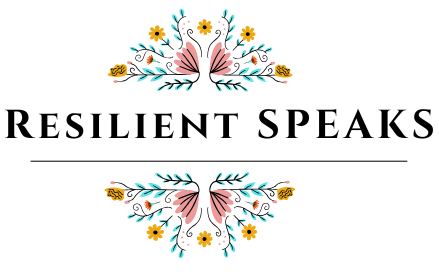It’s a usual routine to say thank you to someone who helps us make coffee and hands us the tea mug. We think of thankful and grateful as one entity, but these both hold different meanings.
Thankfulness is different from gratitude in emotional terms. But most of us intermingle the terms. Therefore, it is necessary to know the emotional context behind these two words.
Knowing the emotional background behind these two words can improve relationships and emotional health.
In this blog, we will learn the difference in meaning between these terms and their influence on our daily lives.
When You Feel Thankful
Thankfulness tends to be more situational; it’s the quick response we have when someone does something nice for us or when life bestows a favor upon us.
Saying thank you is a small gesture that can make a big difference in our daily interactions. It’s important to express gratitude.
When to say “thank you”:
- When a friend lends a hand.
- When a colleague shares valuable advice.
- When someone is holding the door for you.
- When someone offers a compliment.
- When a cashier rings up your groceries.
When You Feel “Grateful”
Gratitude often hits us in moments of peace. It is not about the emotional terminology behind the word, but the practice of gratitude has a positive impact on our emotional well-being. By practicing gratitude, we can feel inner joy and peace.
Moments Of “Gratefulness”
- When you see a beautiful sunrise.
- When you walk in the forest.
- When you get a great opportunity.
- Feeling grateful for good health.
- Feeling a connection with nature.
- The beauty of sunsets.
It helps us shift our focus from what we lack to what we have, making everyday life feel richer and more meaningful. In short, feeling grateful transforms ordinary moments into special ones, filling our days with joy and happiness.
How to Obtain Thankful and Grateful in our Daily life
Holding thankfulness and gratitude in our daily lives can transform even the simplest moments into profound experiences.
- Keep a gratitude journal: Write down 10 things in your journal before going to sleep, no matter how small it is.
- Verbalize Appreciation: Start your day with gratitude and try to praise the people around you.
- Practice mindfulness: Focus on the positivity around you and feel it. Pay attention to the beauty of nature.
- Shift negative thoughts: When you feel down, say positive words in your heart.
- Focus on what you have: Take time to value the things that you have instead of focusing on lacking.
- Gratitude Reminders: You can set the alarm or paste sticky notes on the study table that remind you to praise the blessings.
With the help of these practices, you’ll find that thankfulness becomes a natural part of your life.
Ways To Express Gratitude In Relationships
Gratitude in relationships goes beyond just saying “thank you.” The best way to express gratitude in relationships is through the art of active listening.
Instead of just hearing words, engage with their emotions; nod, ask questions, and reflect on what you’ve understood. It transforms everyday conversations into meaningful exchanges and strengthens the bond between you.
Do’s:
- Say “Thank You” Often
- Write Notes or Letters
- Give Thoughtful Gifts
- Offer Your Time
- Support Their Goals
Don’ts:
- Ignore their preferences
- Take them for granted
- Use generic phrases
- Wait for Big Moments Only
- Focus Solely on Material Gifts
Emma’s Personal Journey of Thankfulness to Gratefulness
Emma shares her journey from thankfulness that transformed her life. She always felt thankful for her job, supportive friends, and the cozy home she had created. These were daily reminders of the positives in her life, and she often expressed gratitude.
However, everything changed when she suddenly lost her job. As the days turned into weeks, Emma realized that maintaining a sense of thankfulness was no longer enough. Instead of focusing solely on what she had, she started to appreciate the lessons hidden within her struggles.
A grateful heart is a pure heart.
A grateful heart is often seen as a pure heart, and research has shown that gratitude can significantly impact our emotional well-being.
Studies have shown that people who daily express gratitude experience fewer diseases and enjoy improved sleep quality.
When we adopt this practice, our hearts become open, enabling us to embrace life’s complexities with grace.
Conclusion
By practicing intentional gratitude, we embrace the positive view of our lives that helps us to cultivate our relationships beautifully. At the end of the day, take a look at things you are grateful for and share your gratitude experience with your loved one.
FAQ’s
What id grateful Vs. Thankful ?
Being thankful is often a spontaneous feeling, usually in response to something nice someone has done. Gratefulness, is a deeper, more reflective appreciation that can last longer.
Is one feeling stronger than the other?
Generally, gratitude is considered a stronger emotion because it involves a deeper sense of appreciation and recognition of the kindness received over time.
What is a good sentence for saying thank you?
A simple and heartfelt sentence is, “Thank you so much for your kindness; it means a lot to me.”
Can I say thank you in different languages?
Definitely! Saying thank you in another language, like “Merci” in French or “Gracias” in Spanish, can be a nice touch.
Can gratitude improve conflict resolution?
Yes! Practicing gratitude can shift your focus from negativity to appreciation, making it easier to communicate and resolve conflicts in constructive ways.

